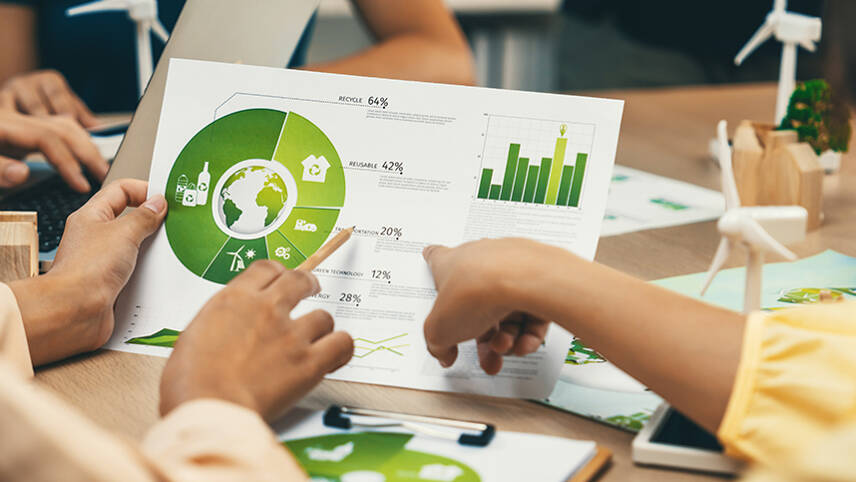Register for free and continue reading
Join our growing army of changemakers and get unlimited access to our premium content

This masterclass-style webinar, taking place on Tuesday 7 May at 1pm (BST), will provide actionable insights and best practice that will break down what the changes in the latest ESOS Phase 3 means for qualifying organisations and how this can accelerate progress towards net-zero.
—-CLICK HERE TO REGISTER FOR THE ESOS MASTERCLASS—-
The ESOS compliance date has been extended, with businesses now having up to 5 June to get their processes in order. The scheme requires qualifying businesses to appoint dedicated lead assessors, measure energy consumption, conduct energy audits and highlight and report on energy efficiency measures that could deliver savings.
What will all of these latest developments to ESOS mean for your business in practice? What are the most effective routes to ESOS Phase 3 compliance ahead of the new deadline? And how can your business seize the “Opportunity” of the Scheme to support your decarbonisation goals?
This 45-minute masterclass will seek to answer all of those questions and more. The masterclass will be based around expert presentations that break down the ESOS Phase 3 compliance updates and provide top tips to make the most of the scheme. The session will culminate with a live audience Q&A, allowing you to have your ESOS Phase 3 questions answered by our experts.
Discussion points
- Phase 3 updates: Everything you need to know
- What comes after NOC (notification of compliance)? Developing and implementing your action plan
- How ESOS fits with net-zero targets
Chair
- Matt Mace, editor, edie
Presenters
- George Richards, Director, JRP Solutions
- Owen Jones, Principal Consultant – Sustainability and Energy, JRP Solutions
An on-demand recording of the session will be made available for those who register. Click here to register.





New report highlights $180 billion opportunity for hydrogen electrolyzers in key Asian markets by 2050
———————————————–
( Amitabh Pandey )
DELHI, APRIL 12, 2024—
Net zero targets in Asia’s four largest economies could substantially expand the market for green hydrogen (H2) electrolyzers, with the combined potential in these countries projected to reach $180 billion by 2050 for key industrial applications, according to a new report from the High-level Policy Commission on Getting Asia to Net Zero convened by the Asia Society Policy Institute.
Green Hydrogen for Decarbonizing Asia’s Industrial Giants assesses the future potential and trajectory for electrolyzers needed to meet green H2 demand in China, India, Japan, and South Korea. The study, which was carried out by Global Efficiency Intelligence, looks at the role of green H2 in three priority industries—steel, ammonia, and methanol—under various decarbonization scenarios. In these sectors, green H2 has the capacity to significantly reduce emissions by replacing carbon-intensive processes with renewable energy-powered electrolysis.
Should the four countries adhere to their declared net zero targets, the analysis projects massive growth in the market potential of green H2 electrolyzers for the three industries by 2050:
China: $85 billion by 2050, up from $22 billion in 2030
India: $78 billion by 2050, up from $4 billion in 2030
Japan: $9 billion by 2050, up from $1 billion in 2030
South Korea: $8 billion by 2050, up from $1 billion in 2030
The collective market potential for electrolyzers is thus expected to skyrocket to $180 billion by 2050, with a compound annual growth rate as high as 12% between 2030 and 2040. This is nearly five times as large as the market potential under a business-as-usual scenario.
The total electrolyzer market opportunity will be even greater since it includes applications for other industries. The study also breaks down the electrolyzer market potential for each of the three industries and four countries analyzed.
The report offers a suite of policy recommendations aimed at accelerating the development and adoption of green H2 and electrolyzer manufacturing. These targeted strategies for policymakers, industry players, investors, and think tanks aim to collectively support a robust ecosystem for green H2 production and use in these countries toward a net zero industry.
Ali Hasanbeigi, Founder, CEO, and Research Director at Global Efficiency Intelligence, said, “Using green H2 in H2-DRI steelmaking, and producing green ammonia and methanol is essential to decarbonize these key sectors. Our analysis shows there is a massive electrolyzer market potential in these major Asian countries and those who capitalize on it stand to gain substantially.”
Kate Logan, Associate Director of Climate at the Asia Society Policy Institute, noted, “These findings underscore how ambitious net zero targets can shape demand for a new and critical technology, such as electrolyzers, that will be essential to decarbonizing the region and the world. Asia’s industrial giants could therefore see net zero pathways as vehicles for driving development, rather than limiting it.”
The report was launched at an event today in New Delhi, India.
Amitabh Kant, India’s G20 Sherpa, said, “I congratulate the Asia Society Policy Institute for releasing the Green Hydrogen for Decarbonizing Asia’s Industrial Giants report, which showcases the need to transform the hard-to-abate sectors of the economy, including steel and fertilizers. As India has set its sights on becoming energy-independent by 2047 and achieving Net Zero by 2070, we recognize the critical role of Green Hydrogen. India, with its vast renewable energy resources, also has the opportunity to produce Green Hydrogen for the world.”
Charith Konda, Energy Specialist at the Institute for Energy Economics and Financial Analysis, added, “Analysis of the three applications reveals that India’s green hydrogen electrolyzer market is poised for significant growth, with a projected CAGR of 16%—escalating from US$4 billion in 2030 to US$78 billion by 2050. This robust outlook sends a positive signal to investors and policymakers, underscoring the strategic role of green hydrogen in meeting net zero objectives.”
***
About the High-level Policy Commission on Getting Asia to Net Zero :
Launched in May 2022, the High-level Policy Commission on Getting Asia to Net Zero aims to urgently accelerate Asia’s pathway to net zero emissions while ensuring that the region thrives and prospers through this transition. Through research, analysis, and engagement, the Commission’s diverse set of recognized Asian and global leaders aim to advance a powerful, coherent, and Paris-aligned vision for net zero emissions. The Asia Society Policy Institute serves as the Commission’s secretariat. Find out more at AsiaSociety.org/netzero.